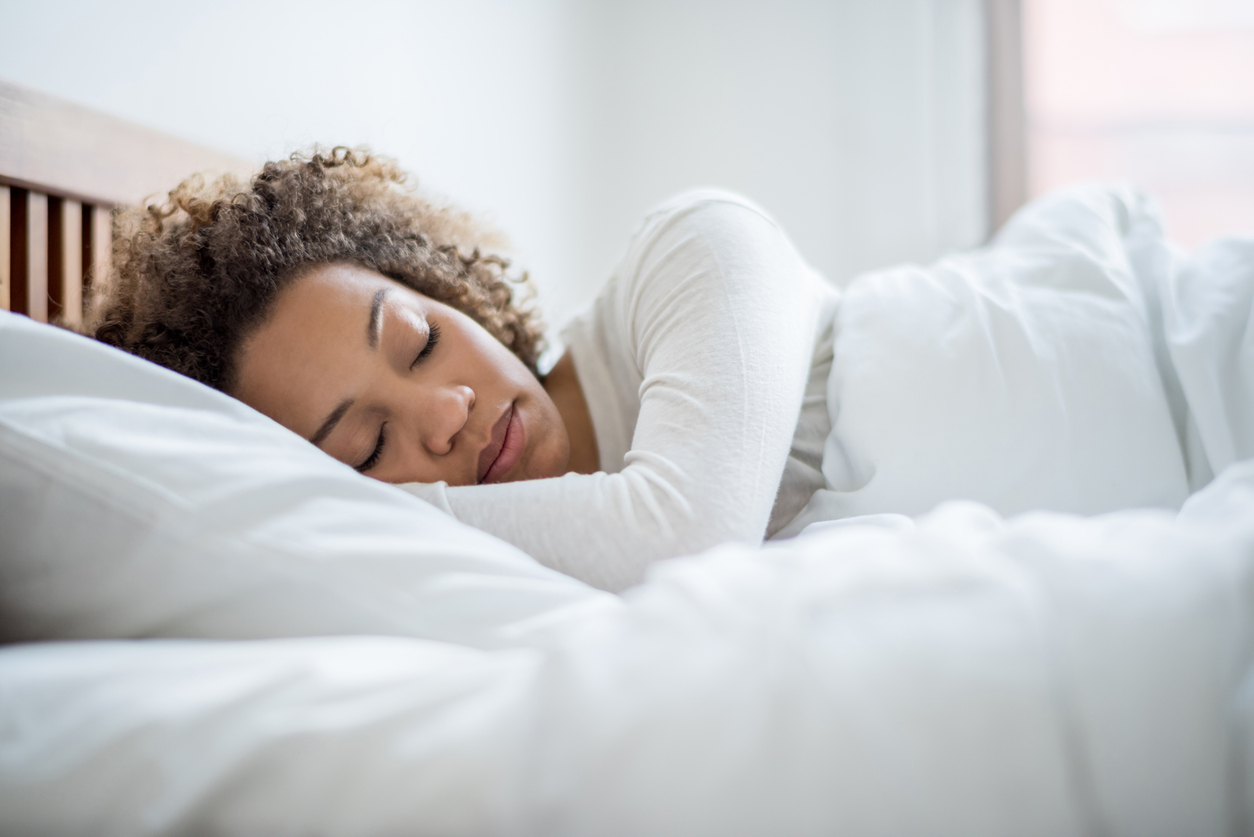Scientists Say This Is the #1 Best Bedtime If You Want to Be Fitter and Healthier — Best Life

Getting the best rest and living a healthier lifestyle might come down to timing. According to a new study using data from roughly 20,000 people, those who get to bed earlier and wake up earlier are more likely to complete a physically challenging workout compared to those who go to bed late and wake up later.
Scientists say the findings suggest the importance of setting a sleep schedule and sticking to it—especially if you want to get moving the next day. Here’s exactly what the research found and how you can optimize your bedtime to be fitter and healthier.
RELATED: Napping As an Adult May Increase Your Mortality Risk—If You Sleep for This Long
A new study looked at how sleep affected physical activity and moodThe latest data comes from a study published in June 2025 in the journal Proceedings of the National Academy of Sciences. Researchers gave 19,963 adults a Whoop health & fitness-tracking bracelet to collect their sleep habits for an entire year. This provided the team with just shy of 6 million “person-nights” worth of sleep data.
The researchers hoped to gather information on a few key points, including how sleep levels affect things like physical activity (especially moderate-to-vigorous workouts) and a person’s general mood and energy levels the next day.
Their models also took into account variables such as individual health, what day of the week or time of year it was, and even each participant’s personal sleep schedule at the outset of the study.
Results show significant benefits to going to bed at 9 p.m.The results provided a few interesting takeaways. First, participants who got a slightly shorter-than-average night of sleep had a small improvement in their reported mood and energy the following day.
The researchers believe this may be because there’s a biological function that acts to boost activity the following day.
Second, participants who went to bed earlier (around 9 p.m.) were more likely to engage in increased physical activity the following day than participants who went to bed later (such as around 11 p.m.)—even when they clocked the same total hours of sleep.
Specifically, early sleepers completed about half an hour more of exercise than night owls who went to bed after midnight, and an average of 15 minutes more than those who went to bed slightly later than 9 p.m.
Ultimately, the researchers concluded that while it’s still important to emphasize getting a certain number of hours, to live a healthier and fitter lifestyle, moving your bedtime up by an hour or so can help you stick to a consistent schedule and longer workouts.
RELATED: 10 Exercises That Double Your Step Count in Half the Time
Other studies show the benefits of an early bedtimeThis is far from the first time science has found an upside to hitting the hay on the earlier side. A meta-analysis from Canada published in October 2020 looked at data collected in 41 different studies to determine the relationship between bedtime and cardiovascular disease, weight gain, and diabetes.
Altogether, it included more than 92,000 participants aged 18 and older from across 14 countries.
Results showed that those who were late to bed and late to rise were more likely to have worse health outcomes, including a higher body mass index (BMI), higher blood pressure, and issues with blood sugar regulation (or prediabetes) compared to those who got to bed and woke up earlier.
Those who were inconsistent with their bedtimes were also more likely to be obese or diagnosed with type 2 diabetes.
How to hack your sleep schedule for a fitter youThis area of research makes an important case for getting consistent sleep that starts earlier in the night. However, getting into bed on time is only part of the battle: If you’re struggling to doze off, there are a few ways you can help yourself catch the z’s you need.
In a TikTok video posted earlier this year, Christian Poulos, MD, outlines a few simple pointers that can help you get a better night’s sleep.
He first suggests taking a hot shower right before you get into bed, which mimics “the natural cooling process that signals your brain it’s time to wind down.”
It’s also important to properly plan your meal times, too. “If you stop eating three hours before bed, your heart rate will drop faster while you’re sleeping, allowing you to get more restful sleep,” Dr. Poulos suggests.
Finally, setting the mood for sleep can help, too. He recommends starting to dim the lights in your house about two hours before you’re planning on getting in bed “to trigger the natural release of melatonin, helping you get into a sleepier state.”
We offer the most up-to-date information from top experts, new research, and health agencies, but our content is not meant to be a substitute for professional guidance. When it comes to the medication you're taking or any other health questions you have, always consult your healthcare provider directly.